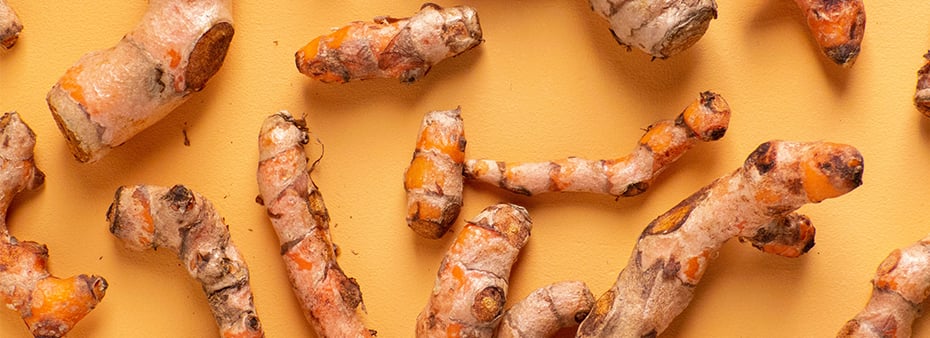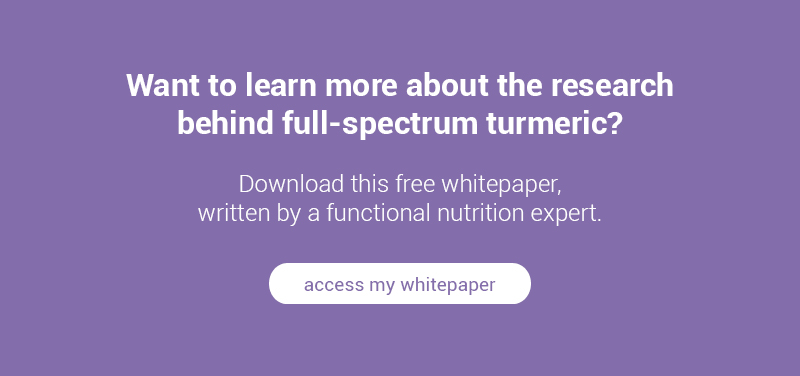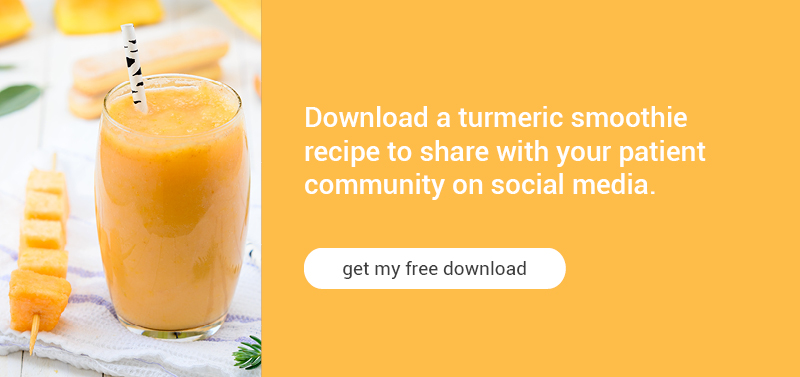Is there anything turmeric can’t do? The brightly colored spice does more than add flavor and a golden hue to foods. It is a pleiotropic botanical with powerful anti-inflammatory and antioxidant properties that benefit overall health.
Turmeric
is a spice that comes from the root of the Curcuma longa plant, which is a perennial in the ginger family. Its major active ingredient is curcumin, and most supplement formulas are centered on this compound. But new research demonstrates the
benefits of the complete matrix of turmeric compounds, which highlights the importance of ingredient bioefficacy in supplement formulas.
Curcumin Bioavailability vs Bioefficacy
Much of the research emphasizes curcumin as the most important curcuminoid compound in turmeric. This ingredient is often touted as a star phytonutrient, with more than 3,000 preclinical studies highlighting its benefits, which include reducing inflammation and mitigating a variety of diseases. However, one of the biggest problems with curcumin is bioavailability. Some supplement delivery methods, like liposomes and phytosomes, intentionally move curcumin past the gut microbiota to increase its bioavailability. While these methods are effective, by eliminating interaction with the gut microbiota, they do not allow for increased physiological benefits and efficacy of turmeric compounds.
The Health Benefits of Full-Spectrum Turmeric
New research now indicates that we should re-evaluate our understanding of how botanicals interact in the body (known as bioefficacy) and not focus solely on bioavailability. In the case of turmeric, we’re seeing a paradigm shift on the issue of
curcumin bioavailability. Research shows curcumin is actually more effective when it interacts with the gut microbiota. Furthermore, the combination of
curcumin and the other compounds found in turmeric increases the cumulative efficacy of the nutrients.
In addition to curcumin, turmeric root contains turmeric oils, turmerin proteins, polysaccharides and fibers that all positively influence physiology.1 The anti-inflammatory properties originate in the gut microbiota, as the compounds interact
with each intestinal layer.2
Turmeric and Inflammation
As a master regulator of inflammation, turmeric compounds can increase intestinal alkaline phosphatase activity in the gut, which nullifies the effects of lipopolysaccharides. The compounds can also bind to portions of innate immune cell receptors, including toll-like receptors, and simmer the effects of endotoxin-induced inflammation. Some studies have even investigated whole turmeric extracts and their ability as prebiotics.2,3 One study found that these full-spectrum turmeric extracts were digested by the commensal bacteria and promoted the growth of gut bacteria.3
The Bottom Line
Harnessing the benefits of just one compound from a botanical might not be the most effective route toward health. Rather than pushing more of one component into the body to enhance bioavailability, we need to look at bioefficacy, which may require a lower dose at the same or greater level of effectiveness. Botanicals like turmeric have much more to offer than just one component, and by choosing the complete matrix of turmeric compounds, we can provide our patients an effective formula that will optimize their health.

Mia Iyer, DC is a board-certified chiropractic physician who received her doctorate from National University of Health Sciences. With a passion for research, she focused her clinical rotations on publishing relevant, peer-reviewed journal articles. Working in an integrated health care clinic, Dr. Iyer has successfully treated her patient population using an integrative approach, utilizing multiple evidence-based modalities addressing the root of illnesses.
References
1. Ghosh SS, He H, Wang J, Gehr TW, Ghosh S. Curcumin-mediated regulation of intestinal barrier function: The mechanism underlying its beneficial effects. Tissue Barriers. 2018;6(1):e1425085.
2. Zam W. Gut Microbiota as
a Prospective Therapeutic Target for Curcumin: A Review of Mutual Influence. J Nutr Metab. 2018;2018:1367984. Published 2018 Dec 16.
3. Ghiamati Yazdi F, Soleimanian-Zad S, van den Worm E, Folkerts G. Turmeric Extract:
Potential Use as a Prebiotic and Anti-Inflammatory Compound?. Plant Foods Hum Nutr. 2019;74(3):293-299.






